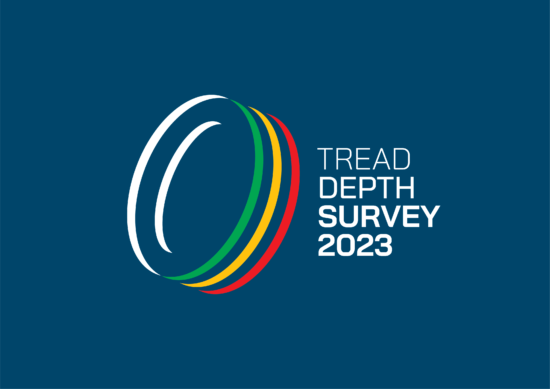More than half of UK tyres are illegal or borderline at point of replacement – TyreSafe study
 TyreSafe’s Tread Depth Survey 2023 is a highly comprehensive study of the state of the UK’s tyres at the point of replacement (Photo: TyreSafe)
TyreSafe’s Tread Depth Survey 2023 is a highly comprehensive study of the state of the UK’s tyres at the point of replacement (Photo: TyreSafe)
A landmark new study by TyreSafe, Imperial College, London, and National Highways has revealed that more than half of tyres replaced in the UK have illegal or borderline tread depth. The tyre safety charity said the eye-opening data underscores the urgent need for increased awareness and action. TyreSafe published the report on tyre maintenance and safety practices among motorists, which is available to download now, ahead of the country’s Road Safety Week.
The survey examined more than half a million tyres at the point of replacement across the UK, with data collected by TyreSafe members and non-members. Sources include establishments offering maintenance repairs for various vehicle components, including tyres, exhaust systems, and brakes. The study’s data sources predominantly comprised national franchise operations with multiple outlets per region, ensuring a representative sample of the country’s motoring landscape.
The organisation’s chair Stuart Lovatt told Tyres & Accessories that the study is the most comprehensive of its kind. This dataset follows a similar but smaller study conducted in 2016. Comparing these two surveys, the newer study reveals a 10.8 per cent improvement nationally in the number of tyres illegal at replacement, but also demonstrates that there is still work to be done to raise the profile of tyre safety.
Lovatt said, “The statistics are alarming, and continue to drive home the stark and very real danger of driving on defective tyres. As we approach Road Safety Week, drivers should be reminded that tyre safety should be a year-round commitment. It’s not just about avoiding penalties and reducing fuel wastage but crucially about saving lives. Checking your tyres once a month, every month and before long journeys can make a significant difference on our roads.”
Key points from the new TyreSafe survey
The key points of the new survey include:
- Tyres were surveyed at the point of replacement, offering a snapshot of their condition when they were deemed unfit for further use.
- The study categorised the data by vehicle type (passenger cars and light commercial vehicles) and region.
- Data collection took place from April 1, 2022, to March 31, 2023, providing a comprehensive overview of tyre conditions over a 12-month period.
- A total of 549,558 tyres were surveyed, representing approximately 15% of all tyres replaced in the specified timeframe.
- Notably, data related to Heavy Goods Vehicles (HGV) and Large Goods Vehicles (LGV) tyres was not included, as these are categorised as a separate, specialist group.
The survey’s approach prioritised anonymity and confidentiality in data collection:
- Data was provided by both TyreSafe members and non-members under the assurance of anonymity.
- Only TyreSafe’s steering committee received regular updates on the survey’s results on a monthly basis.
- Participants contributed data as part of their routine operations, ensuring the accuracy and authenticity of the collected information.
- The study’s design prevented any indication of expected outcomes from being communicated between TyreSafe, its representatives, and the participants.
Extrapolating the data to reveal the potential scale of the issue on the roads:
- Given that approximately one tyre per vehicle is changed annually, the study’s findings are extrapolated across the entire vehicle parc.
- With an estimated 36 million cars and light commercial vehicles (LCVs) on the road, around 36 million tyres are changed each year.
- On average, this translates to approximately 3 million tyres replaced per month and around 100,000 tyres replaced daily.
- During the 12-month survey period, an estimated 36 million tyres were replaced across the country.
- The surveyed 549,558 tyres constitute about 15.2 per cent of all tyres replaced in Britain during that period.
This landmark study sheds light on a pressing issue and underscores the critical importance of tyre safety education and regular maintenance. TyreSafe remains dedicated to advocating for safe driving practices and raising awareness about tyre maintenance, saving lives and resources for all road users.





Comments